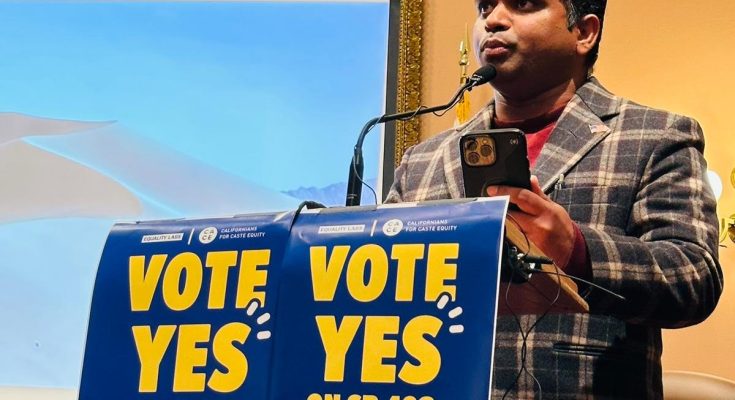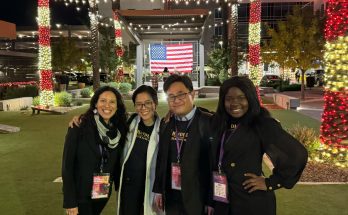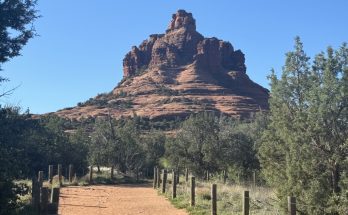<Prem Pariyar>
At school, friends and teachers did not eat food or drink water touched by Prem Pariyar. He and his family were also barred from worshiping at the temple.
In Nepal, more than 400,000 individuals out of the country’s 30 million population belong to a community known as the untouchables. Members of this community, like Prem Pariyar, identify themselves as Dalits, which translates to ‘the oppressed.’
Raised within this caste system, Prem encountered discrimination at every stage of his life. Residing in Kathmandu, Nepal’s capital, his family was subjected to physical assaults when accessing the same public water source as their neighbors. “Despite displacement and violence, we couldn’t find justice. This prompted my decision to leave Nepal for the U.S.,” he recalled.
Beyond Nepal, discrimination resonates across the South Asian diaspora worldwide, notably affecting South Asian Dalit communities in the U.S. This has prompted universities to revise non-discrimination policies, and cities like Seattle, Washington, and Fresno, California to amend their regulations. These efforts have further galvanized California’s senate and assembly to amend some state laws but faced a setback with the Governor’s veto. This obstacle not only poses a challenge to the Dalit rights movement but also highlights power struggles, revealing tensions between the upper-caste elite and the marginalized Dalit community.
Upon arriving in the U.S. to escape caste-based discrimination, Prem discovered that prejudice had followed him. In California, he encountered exclusion within the Nepali diaspora. “At a party, I was segregated and made to wait for food instead of serving myself,” he said. “I was shocked to see how this shadowed me here too, where I expected only educated individuals concerned with human rights. It shattered my illusion.”
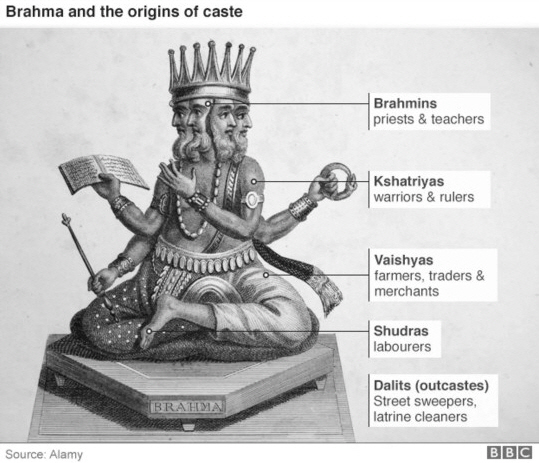
One day, as he waited for the light rail, he struck up a conversation with two speaking Nepali individuals. Upon introducing himself as a graduate student in the social work department at California State University, East Bay, the initial exchange was amiable. However, when asked for his surname, a common practice in South Asia to discern caste affiliations, and disclosed the name as ‘Pariyar,’ the mood changed.
Recalling his newly met compatriots’ reaction, he said the two individuals gave him a thorough examination from head to toe. “I sensed in their scrutiny a question of, ‘How could you come here to study in the same university as we are studying?’ The moment was deeply embarrassing.”
This discrimination prompted him to seek legal mechanisms within the university. However, he found no specific mechanism to address caste-based discrimination, even though procedures and remedies existed for discrimination based on race, disability, sexual orientation, and gender.
In collaboration with a professor from the social work department, he developed various strategies to address the issue. The professor introduced him to Equality Lab, a Dalit feminist-led civil rights NGO that combats caste-based discrimination in the U.S.
This activism evolved into a more structured approach as Equality Lab developed its engagement with the Department of Social Work. Initially, the department revised its mission statement to include caste as a protected category, alongside race, ethnicity, gender, age, disability, sexual orientation, immigration status, religion, and other forms of social injustice in its non-discrimination policy.
Subsequently, the issue was addressed by the academic senate’s faculty diversity and equity committee at CSU East Bay. A resolution was passed to incorporate caste as a protected category in the university’s non-discrimination policy.
This initiative expanded to the CSU system, one of the largest public university systems in the country with 23 campuses, which also included caste as a protected category in its non-discrimination policy.
Before this development, Brandeis University had already banned caste-based discrimination, becoming the first U.S. university to do so. Harvard University, the University of California, Davis, and Brown University followed similar prohibitions. Under the revised policy, students and staff can now file complaints if they experience discrimination or harassment based on their perceived castes, and these complaints may trigger formal investigations.
“We engaged in extensive lobbying efforts with politicians and university leaders, sharing personal testimonies on caste discrimination, organizing grassroots initiatives, and seeking advice from legal experts,” an Equality Lab spokesperson stated in an email interview. “As a result, we achieved such policy reform within universities.”
Following the progress at universities, the movement transitioned to cities. In February 2023, the Seattle City Council passed a resolution to include caste as a protected category in the city’s anti-discrimination laws, marking Seattle as the first city to enact such laws in the U.S. Subsequently, Fresno, California, became the second U.S. city to explicitly prohibit caste discrimination when the City Council unanimously voted in September 2023 to add ‘caste’ and ‘indigeneity’ as new protected categories in its municipal code.
In California, the Dalit rights movement gained momentum following a lawsuit filed by the California Civil Rights Department (formerly the Department of Fair Employment and Housing) against Cisco, the Silicon Valley tech giant, and two of its engineers in 2020. The lawsuit alleged caste-based discrimination against an employee by Cisco supervisors and engineers. Cisco denied the allegations. Later, the Civil Rights Department voluntarily dropped the case.
Despite the prohibition of caste-based discrimination in Nepal during the 1960s and in India since the 1950s, the issue remains a significant societal challenge. This system not only segregates people based on their caste hierarchy but also limits their employment opportunities. Initially, Dalit families were denied education, which affected their access to employment, healthcare, and political empowerment.
Following the restoration of democracy in Nepal and the end of British colonial rule in India, governments introduced laws to curb discrimination and implemented reservation policies to promote education and employment among Dalits.
Historically, migration to Western countries has been dominated by individuals from the upper echelons of the caste system who had access to education and job prospects. However, with government initiatives promoting Dalit education and employment, members of the Dalit community have begun migrating to the West.
According to Equality Lab’s 2018 report, “Caste in the United States: A Survey of Caste Among South Asian Americans,” a significant portion of Dalit migration to America occurred within the last decade. In contrast, upper-caste individuals who migrated to America did so primarily 25 to 50 years ago. Consequently, instances of discrimination and social power struggles have emerged in the US.
According to the Equality Lab’s survey report, one in every three Dalit students has reported experiencing discrimination during their education. Additionally, two out of three Dalits have reported unfair treatment in their workplaces, with 60% of Dalits stating they have encountered caste-based derogatory jokes or comments.
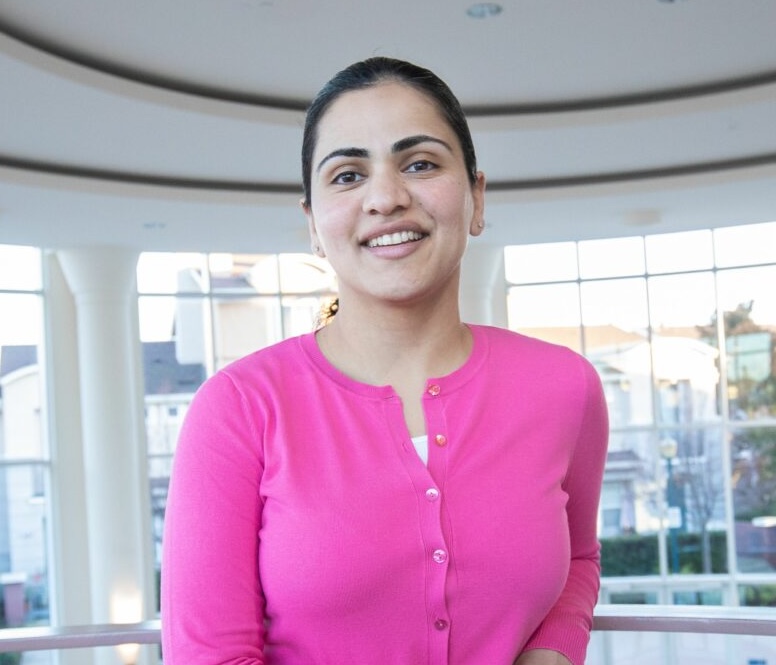
California, home to a large number of South Asian immigrants, including those from the Dalit community, has recently seen backlash within the diaspora regarding caste-based discrimination. State Sen. Aisha Wahab, D-Hayward, sought to curb such discrimination.
In Feb 2023, she introduced Senate Bill 403, which proposed adding caste to the list of non-discriminatory grounds in the Fair Employment and Housing Act, the Unruh Civil Rights Act, and the Education Code.
The Judiciary Committee approved the bill in April, marking the first step in the legislative process. The Senate passed the bill in May with a 34-1 vote, and the Assembly followed suit in August with a 31-5 vote.
In September, the Senate sent the bill to Gov. Gavin Newsom for his signature. However, Newsom vetoed the bill on Oct. 7, citing existing laws that already prohibit discrimination based on ancestry, thus deeming the bill unnecessary. Had he signed it, California would have become the first state to explicitly ban caste-based discrimination.
Sen. Wahab didn’t provide comments; however, after the bill was vetoed, she stated in her public remarks that she “will continue to fight to balance power and support vulnerable Californians.”
“I believe our laws need to be more explicit, especially in times when we see civil rights being eroded across the country. We cannot take anything for granted,” she wrote.
In the aftermath of legal reform efforts in California, a backlash has surfaced. A segment of Hindu Americans argue that these laws disproportionately target their community. After the California State University (CSU) board of trustees approved the policy, approximately 80 CSU faculty members criticized it. They signed a petition against the reform initiatives, expressing concern that the new policy would apply solely to South Asians. They argue that including caste in the non-discrimination policy would unlawfully single out Indians and South Asians.
However, some people see this as an indication of the increasing influence of Hindu nationalism in the United States. They associate this directly with the Rastriya Swayamsevak Sangh (RSS), an Indian Hindu nationalist organization that shares ideological similarities with the governing party of Prime Minister Narendra Modi.
“This path isn’t easy, but we know that none of the civil rights laws have been passed easily,” Prem said. “Our fight is for equality. It shouldn’t have taken this long.”
(The story was produced as part of the Humphrey Seminar’s assignment, and some paragraphs were translated from Nepali to English using the AI assistant Claude.)

